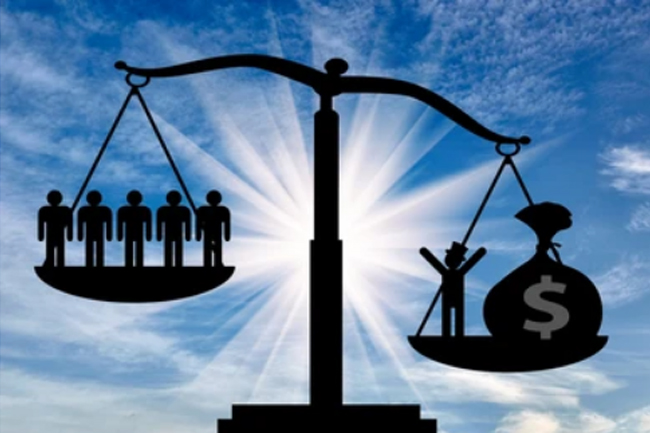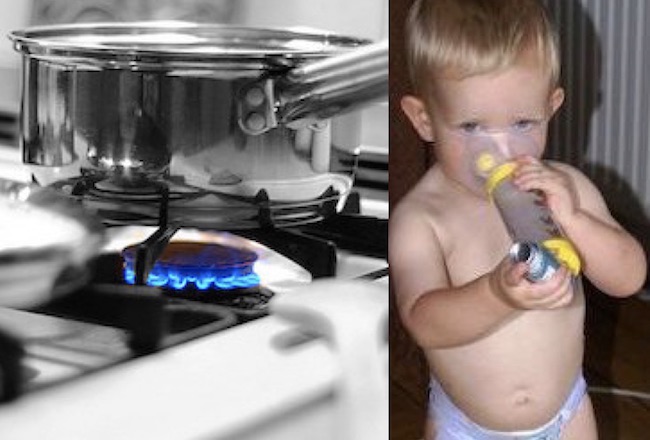The Federal Government will continue to deny Australians the right to clean air as long as it stays partnered with the fossil fuel industry, writes Dr David Shearman.
THE 'LETHAL POWER' report from Greenpeace, stating that air pollution from coal-burning power stations causes 800 premature deaths each year and asthma symptoms in 15,000 children and young adults, is a devastating reminder of the malfeasance of governments over the past ten years.
Some of the worst sufferers from the long-term effects of this pollution lie in respiratory wards of major hospitals fighting to muster all their energy to breathe, a life sentence of continuous physical distress. Others sit at home receiving oxygen, disabled by the fight.
How can this be in a wealthy, technologically advanced nation? Do we not have a right to clean air?
Human rights demands have been on display in Australia but for the wrong reasons. To refuse to wear a mask in the midst of COVID-19 is a gross misconception of human rights for it can bring illness and death to many others.
What does the visionary Universal Declaration of Human Rights (UDHR) say? This Declaration, adopted by the General Assembly of the United Nations in December 1948, reflected the “never again” reaction to the Second World War — we must do better.
The reform was shepherded by the dedicated First Lady of the USA, Eleanor Roosevelt, who, in an inspiring speech, said it was “the international Magna Carta of all men everywhere”.
The Declaration has 30 Articles, each comprising a paragraph pointing to vital reforms to bring improvement to every human life. The obligation to deliver these reforms resides with governments enacting policy and laws and also with you and me to ‘act towards one another in a spirit of brotherhood’.
Article 25 states:
‘Everyone has the right to a standard of living adequate for the health and well-being of himself and of his family, including food, clothing, housing and medical care and necessary social services, and the right to security in the event of unemployment.’
Seventy years later, Australia has several failures in delivering Article 25 as evidenced by food banks for the hungry and homeless people sleeping on the streets for lack of social housing.
We should also reflect on our failures to address the rights of Indigenous people, which have significant health implications.
Clean air is not mentioned, but it is certainly embraced by ‘the health and well-being of himself and of his family... and medical care’ which today includes preventative measures like vaccination.
The right to good health is explained more fully here and is a vital international consideration because over ninety per cent of the world’s population lives in regions (including Australia) where air pollution exceeds World Health Organisation standards.
Australian governments seem indolent to the wide spectrum of suffering imposed on adults, children and the unborn by their lack of policy and action.
They also ignore the economic cost.
The toxic gases, fine particles and mercury from coal-fired power stations pass through the lungs into the circulation to reach different organs where they can accumulate. These toxics help cause dementia and exacerbate its symptoms whatever its cause. They can also cause angina and heart attacks in those with compromised coronary arteries.
Constant anxiety resides in families with an asthmatic child — the unpredictable attacks, the treatment with numerous drugs and the anguished calls from school. Air pollution precipitates more attacks.
Recent research shows mothers living with air pollution give birth to more children with asthma as well as low birth weight.
What more evidence do Australian governments need to act on air quality?
Air quality standards are inadequate by the standards used in other developed countries. Time and time again, COAG has failed to improve them and most observers are driven to the conclusion this failure was in deference to industry costs of implementation of clean air and the consequential rise in electricity prices.
The Greenpeace report is an important and timely reminder to all Australian governments that, at a time when they are diverted by COVID-19, air pollution continues to kill and they have a duty to act.
This duty is evidenced by earlier comprehensive reports, for example, Environmental Justice Australia, many scientific papers and warnings from the AMA.
Australian governments, particularly the current one, have very close relationships with fossil fuel industries and many believe this influence must have played a significant role in their deplorable lack of action. Their deference to industry is demonstrated by encouraging coal-fired power stations to continue when cheaper alternatives are available and with policies to inhibit renewable energy deployment — all irrational behaviours.
Currently, the Federal Government is the “mask refuser”, failing to consider the health needs of others.
Hopefully, redress and change may come through more legal action with ministers appearing under oath to answer the relevant questions.
Perhaps we must look to other means of influence. Government ministers love to be depicted as action men (and women) — hard hats, driving the dozer, kicking the footy and firing the gun.
Once the current COVID-19 crisis is receding, each member of Cabinet should resolve to put on a surgical hat and gown and spend a day as a ward helper in a busy hospital respiratory unit. They could be excused the bedpan round, but certainly not the emptying of the sputum pots.
Dr David Shearman AM is Emeritus Professor of Medicine at Adelaide University and a patron of Economic Reform Australia.
Related Articles
- Every day, coal is killing us
- How the fossil fuels industry taxes us to death — literally
- Coal or bust: How Abbott is stranding Australia
- The coming carbon nanotube energy revolution
 This work is licensed under a Creative Commons Attribution-NonCommercial-NoDerivs 3.0 Australia License
This work is licensed under a Creative Commons Attribution-NonCommercial-NoDerivs 3.0 Australia License
Support independent journalism Subscribe to IA.















